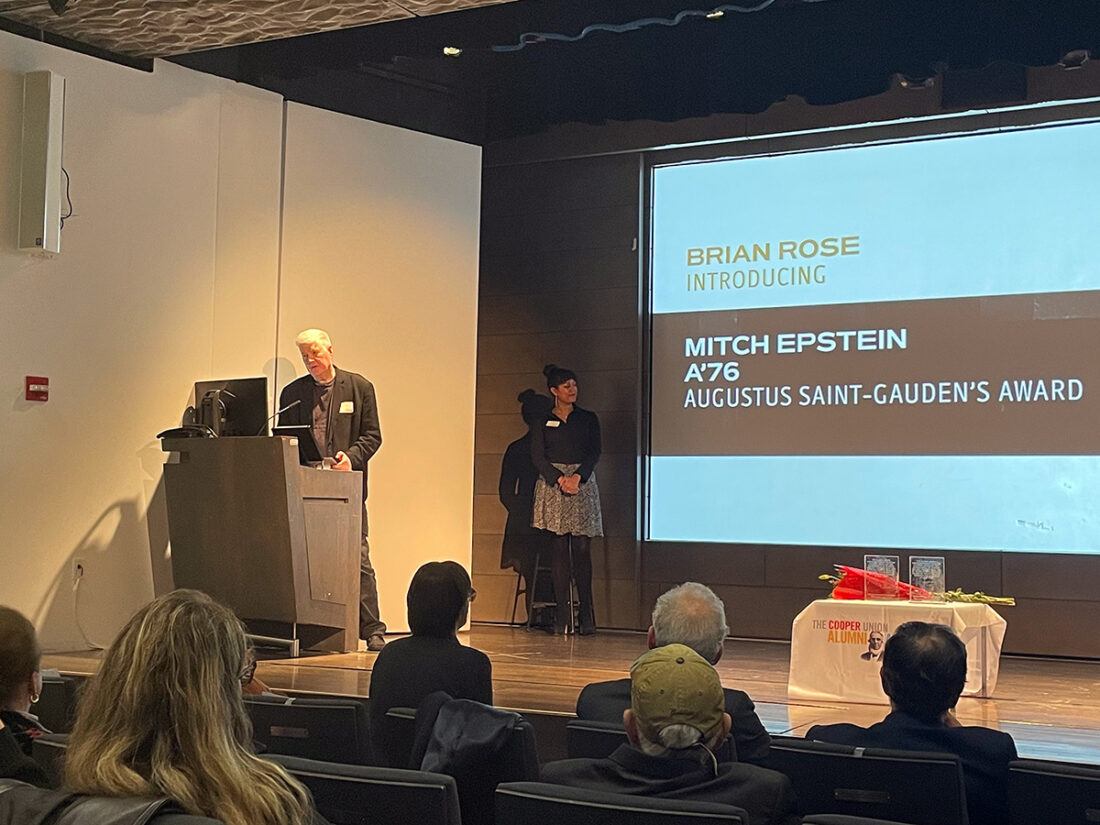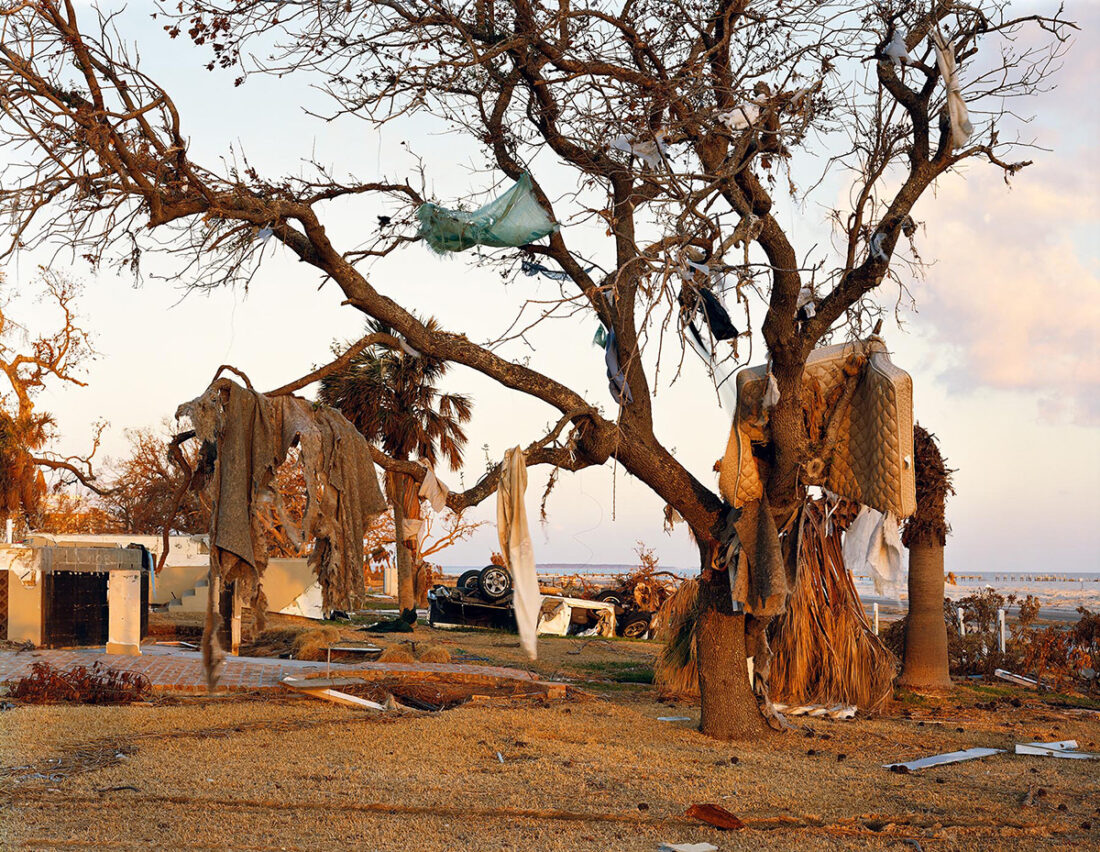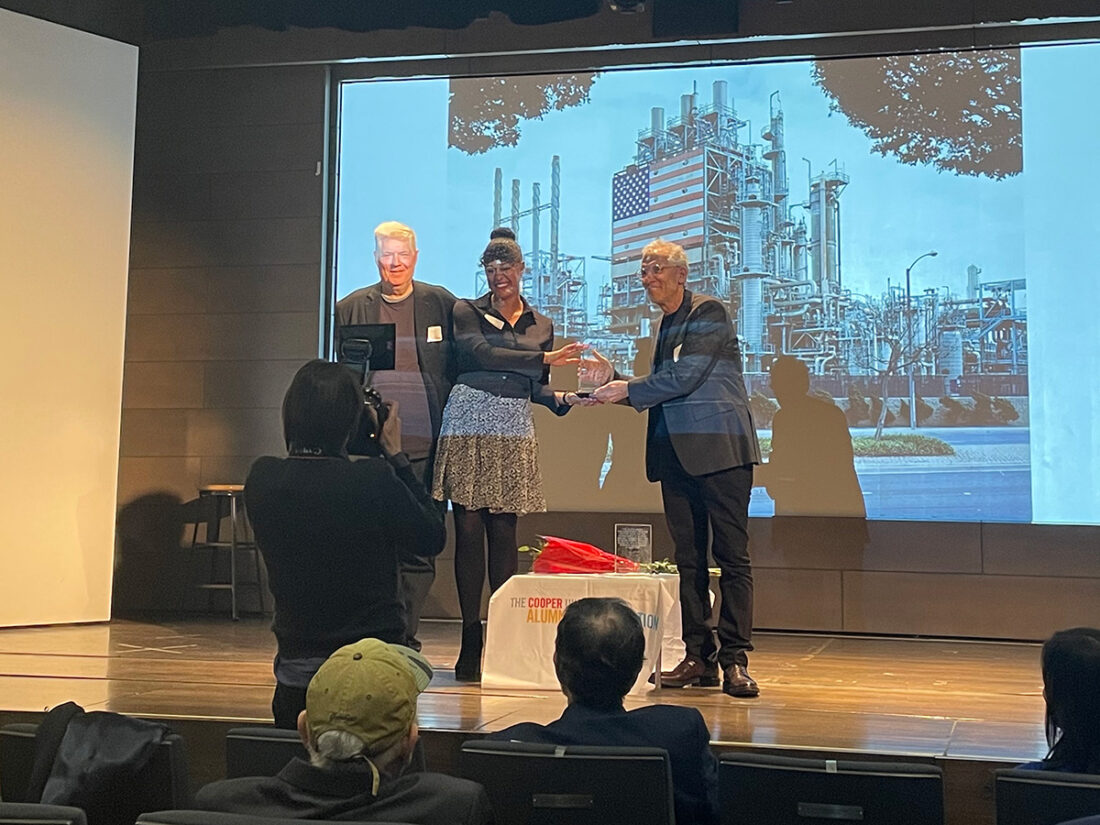
I had the distinct honor last night to introduce Mitch Epstein as the recipient of the August Saint-Gaudens Award, which is given each year to a living Cooper Union school of art alum. The award ceremony was held in the Rose Auditorium (no relation, but somehow appropriate), in the new academic building on Third Avenue and Cooper Square.
Despite only graduating three years apart, this was the first time I had met Mitch. I have closely followed his career, however, and was thrilled to have the opportunity to talk about his work. My introductory remarks follow:
My name is Brian Rose from the Art class of ‘79. It is my pleasure to introduce the recipient of the 2023 Augustus Saint-Gaudens Award. Each year this award is given to a living alum of the School of Art for outstanding professional achievement and contribution in the arts. Tonight I am honored to introduce Mitch Epstein, Art class of 1976.
Mitch and I came out of a photography program that produced a number of influential art photographers and professionals. While at Cooper, Mitch studied with Gary Winogrand, Todd Papageorge, and Joel Meyerowitz, one of the pioneers of color photography.
He went on to a career of astonishing depth and breadth encompassing both still photography and film. He has produced 17 books, and his work has been collected by major museums around the world. Although he has made any number of iconic individual images, I know Mitch’s work especially well through his projects.

One such project, American Power, started out as an assignment to document a dying town in Ohio, its residents being bought out by an electric company that sought to expand its operation. That assignment led to an exploration of American society in relation to the production of energy and its impact on the landscape. I think, in particular, of a picture made in the aftermath of Hurricane Katrina, a superstorm portending more such extreme weather due to global warming. The image is heartbreaking, yet exquisite in its delicacy.
Family Business is more than a photography project. It incorporates stills, film, and interviews and tells the story of the demise of Mitch’s father’s business in the fading industrial city of Holyoke, Massachusetts. The project addresses the wrenching changes occurring in blue collar communities across the country, but it is also a look into Mitch’s own identity. In the short film “Dad,” Mitch’s father struggles to deal with tenants in the aftermath of a fire in a building he owns. In a confrontation with his property manager, he repeats the phrase, “I’ve been doing this for 59 years.” In Family Business, Mitch is not offering easy solace or platitudes, but he is insisting, to echo Arthur Miller, “he’s a human being, and a terrible thing is happening to him. So attention must be paid.”

These are but two projects of many. Mitch’s career and life have taken him to India, Vietnam, Europe, and all across the United States, but some of my favorite photographs of Mitch’s have been made right here in New York City where he lives. In recent years he has turned to making black and white images of rocks, clouds, and trees. Elemental things, hard and soft, tactile and ephemeral, like life itself.